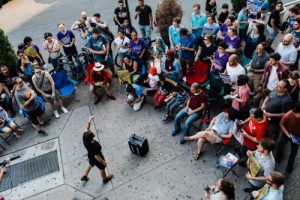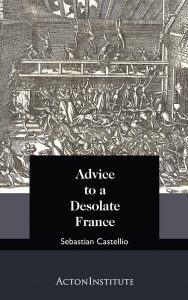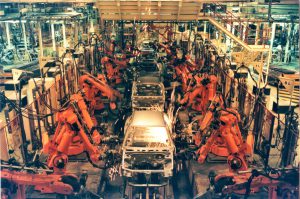


The term “free market” doesn’t really capture the essence of the economic system that produces prosperity, says Michael Novak. The secret that “liberated more than a half billion of their citizens from poverty” was not mere freedom but private ownership and personal initiative.
The new economy in which we live is often called “the free market economy.” But markets are universal. Markets were central during the long agrarian centuries, through biblical times, in all times. For this reason, the term “the market economy” or even “the free-market economy” somewhat misses the mark.
More accurate is the “initiative-centered,” the “invention-centered,” or in general the “mind-centered economy.” More than anything, mind is the cause of wealth today. The Latin word caput (head) — the linguistic root of “capitalism” — has inadvertently caught the new reality quite well.
“The free economy” captures only part of the secret — it emphasizes the conditions under which the mind is more easily creative, in the fresh air of freedom. Freedom is a necessary condition, but the dynamic driving cause of new wealth is the initiative, enterprise, creativity, invention — which use the freedom.
Freedom alone is not enough. Freedom alone can also produce indolence and indulgence. To awaken slothful human beings out of the habitual slumber and slowness of the species, the fuel of interest must normally be ignited. One must move the will to action by showing it a route to a better world. Since humans are fallen creatures, mixed creatures, not angels, the fuel of interest is a practical necessity. The fire of invention lies hidden in every human mind, the very image of the Creator infusing the creature. To ignite it, one must offer incentives, a vision of a higher, better human condition, not only this-worldly, but also nourishing the expansion of the human soul and easement of bodily infirmities.
There is a natural desire in every human being, although it is often slumbering, to better his or her condition. And it is good for a woman to liberate herself and her whole people from the narrower horizons within which they find themselves. It is good for humans to catch glimmers of new possibilities for human development.
This, or something very like this, is the famous, celebrated and usually misunderstood “spirit of capitalism.” This is not a spirit of greed or avarice, which are grasping and small, not creative. It is an esprit, a gift of the spirit rather than of the body.
Read more . . .









